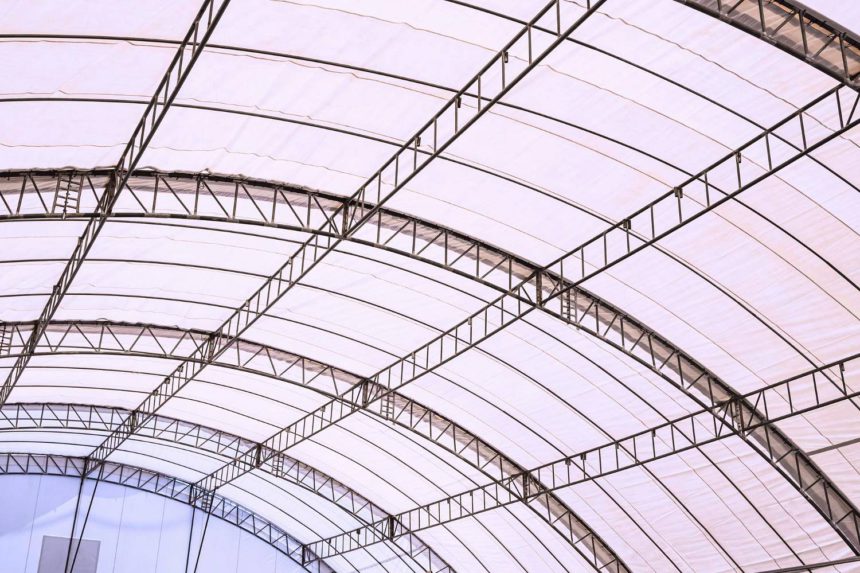In industries where flexible space solutions are required, industrial tents offer a versatile, cost-effective, and efficient alternative to traditional buildings. Whether you need extra space for warehousing, manufacturing, equipment storage, or even temporary office setups, industrial tents provide the flexibility and durability that businesses need to expand operations without the long lead times and expenses associated with permanent structures.
This article explores the various uses of industrial tents, their key advantages, and how they have become an essential part of industrial planning.
What Are Industrial Tents?
Industrial tents are large, durable, and customizable fabric structures that provide businesses with temporary or semi-permanent solutions for additional space. Made from high-strength materials, these tents are designed to withstand harsh environmental conditions, including wind, rain, and extreme temperatures. The robust frames, typically constructed from steel or aluminum, provide structural integrity, while the fabric covering ensures protection from the elements.
These tents can be erected quickly, making them ideal for situations where time is a critical factor. Unlike traditional buildings, which can take months to construct, industrial tents can often be installed in a matter of days or weeks, depending on the size and complexity.
Advantages of Industrial Tents
-
Cost-Effectiveness One of the biggest advantages of industrial tents is their cost-effectiveness. The upfront costs of building permanent structures are significant, requiring investment in materials, labor, and permits. Industrial tents, on the other hand, offer a much more affordable solution. Their modular design allows companies to customize the tent size based on their needs, and because they are temporary structures, many jurisdictions require fewer permits and regulations.
-
Fast Installation Time is money in any business, and industrial tents can be installed quickly, providing immediate space for your operations. Whether you need additional storage for seasonal demand or temporary workspace during a construction project, these tents can be set up and functional in a fraction of the time it would take to build a permanent facility.
-
Flexibility and Portability Industrial tents are highly versatile and can be relocated as needed. If your business shifts locations or expands, you can easily dismantle the tent and reinstall it elsewhere. This portability makes them an attractive option for businesses that need to adapt to changing circumstances or for industries like mining and construction, where operations move frequently.
-
Durability Despite their temporary nature, industrial tents are designed to be incredibly durable. The materials used in their construction are selected to withstand harsh industrial environments. High-quality PVC-coated polyester fabric is often used for the coverings, offering protection against UV rays, rain, snow, and wind. The sturdy steel or aluminum frames ensure that the tents remain stable, even in adverse conditions.
-
Customizability Industrial tents are available in a wide range of sizes and configurations, making them suitable for a variety of applications. Whether you need an open space for equipment storage or partitioned areas for offices or workshops, these tents can be tailored to meet your specific requirements. Additional features such as insulation, climate control, and lighting can also be added to ensure the tent meets the operational needs of your business.
Common Uses of Industrial Tents
-
Temporary Warehousing Many industries face seasonal fluctuations in demand, requiring temporary storage solutions. Industrial tents provide the perfect environment for storing raw materials, finished products, or machinery. Their modular design allows companies to adjust the size of the space based on their needs, ensuring that they have enough room without paying for unnecessary square footage.
-
Construction Sites Construction projects often require on-site offices or equipment storage, and industrial tents are ideal for this purpose. These tents offer a flexible space where construction companies can set up temporary headquarters, store tools and materials, or create sheltered workspaces that protect workers from the elements.
-
Manufacturing Expanding manufacturing operations can be costly and time-consuming if it requires building new facilities. Industrial tents allow manufacturers to increase production space quickly and affordably. Whether it’s for production overflow, assembly areas, or equipment housing, these tents can support the demands of a growing manufacturing operation.
-
Event and Emergency Shelters Industrial tents are often used as emergency shelters in disaster relief situations or for large-scale events. Their quick setup time and durable construction make them suitable for providing temporary housing, medical stations, or command centers in critical situations.
Conclusion
Industrial tents offer businesses a flexible, durable, and cost-effective solution for temporary and semi-permanent space needs. With the ability to quickly install, customize, and relocate these structures, they are a valuable asset for industries ranging from warehousing and construction to manufacturing and emergency services. For companies looking for a practical alternative to traditional buildings, industrial tents provide the perfect balance between functionality and affordability, ensuring businesses can scale their operations efficiently and respond to changing demands.
As industrial needs evolve, industrial tents continue to prove their worth as a vital component in expanding operations while minimizing costs and maximizing flexibility.
